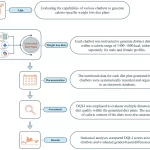Las Vegas, NV – Sleep deprivation is taking a toll on American workers, with far-reaching consequences for businesses, according to a new survey by the National Sleep Foundation (NSF). Presented at the CES 2025 electronics trade show in Las Vegas, the findings highlight the detrimental effects of inadequate rest on workplace productivity and employee well-being.
The survey revealed that approximately 60% of adults reported experiencing negative impacts from poor sleep, and 70% acknowledged that inadequate rest significantly hinders their work productivity. These findings underscore the cascading effects of sleep deprivation, from individual performance to team efficiency and organizational success.
“Not getting healthy sleep has a real, meaningful, negative impact on the workplace and employees,” the report authors stated. Among the surveyed participants, two-thirds admitted they struggle to manage their workload and avoid mistakes after a restless night.
The Cost of Sleep Deprivation
The NSF survey, conducted with a random sample of 1,372 U.S. adults, shed light on specific challenges workers face due to sleep deprivation:
- Starting the day: 72% of respondents said poor sleep makes it harder to get going in the morning.
- Clear thinking: 69% reported difficulties concentrating and thinking clearly.
- Work accuracy: 58% admitted to making more mistakes when sleep-deprived.
- Social interactions: Nearly half (47%) struggled with professional interactions, whether in meetings, on calls, or in person.
- Temper control: 48% found it challenging to manage their emotions at work.
These findings suggest that sleep deprivation does more than just affect personal health—it can disrupt workflows, strain professional relationships, and ultimately cost businesses time and money.
A Call to Action for Employers
“Whether an organization employs 20 people or 200,000, focusing on sleep health and safety in their own community of colleagues can benefit performance and productivity at work and in daily living,” said Dr. Joseph Dzierzewski, Senior Vice President of Research and Scientific Affairs at the NSF.
As businesses aim to rebuild post-pandemic and adapt to hybrid work models, well-rested employees are becoming a key asset. Sleep health initiatives, such as promoting awareness and leveraging new technologies, can boost morale and efficiency.
The Rise of Sleep Tech
Sleep-focused personal electronics, such as wearable devices, are becoming increasingly popular, as demonstrated at this year’s CES trade show. These tools are designed to monitor and improve sleep patterns, potentially offering solutions for employees and organizations looking to address the sleep crisis.
The Bigger Picture
While much research has explored the links between poor sleep and mood changes, cognitive struggles, and health concerns, this survey emphasizes the workplace consequences of inadequate rest. The NSF findings point to the urgent need for organizations to prioritize sleep education and encourage healthy habits.
For more information on the impact of sleep on productivity and workplace safety, visit the American Academy of Sleep Medicine’s website.
The takeaway? When workers snooze, productivity loses—making healthy sleep a wake-up call for all.











